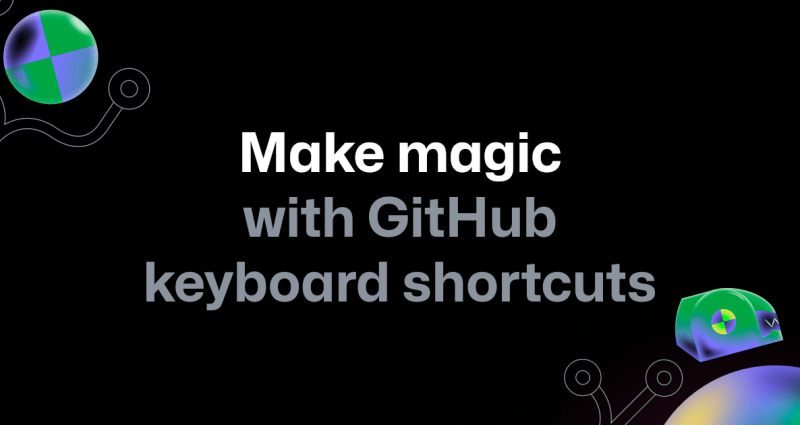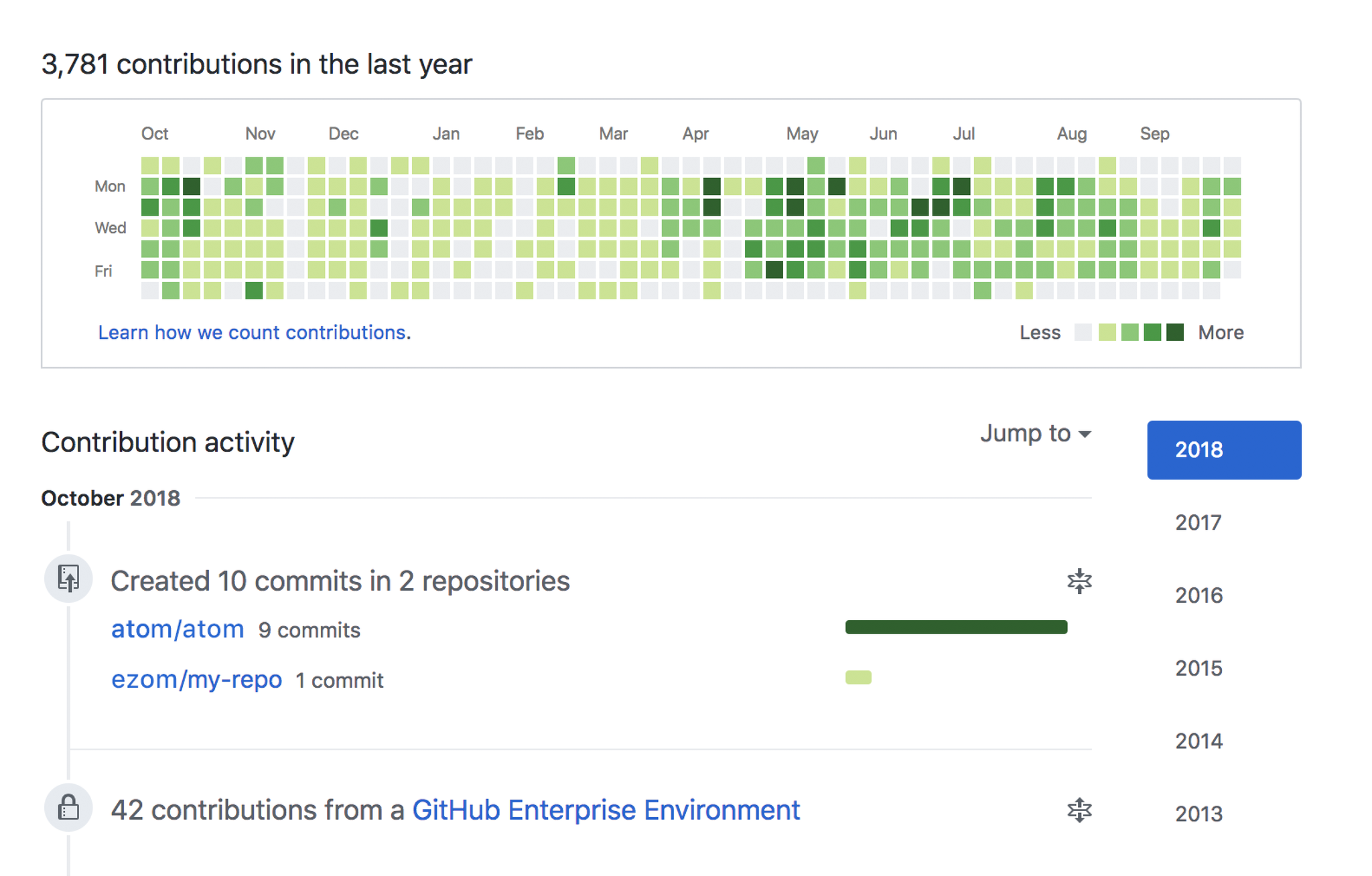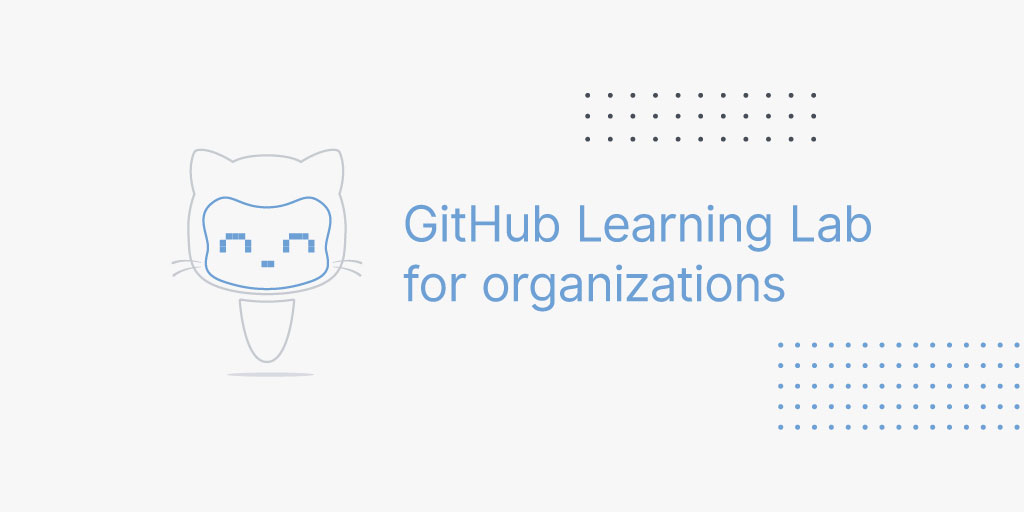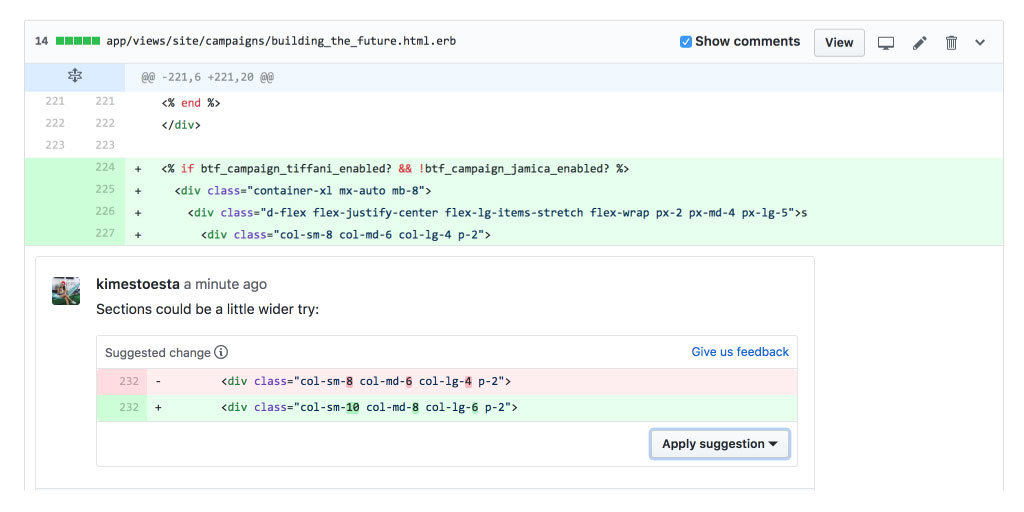
A short guide to mastering keyboard shortcuts on GitHub
Say goodbye to constant mouse clicking and hello to seamless navigation with GitHub shortcuts.
Launch report: Everything we released at GitHub Universe

An open, community-powered platform
As a developer, you spend too much time configuring workflows—or get locked into inflexible tools as the industry evolves around you. We’re bringing the same tools you use while writing software to the rest of your development workflow, allowing you to focus on what matters most: code.
You can choose the developer tools, languages, and deployment platforms you need to be your most productive and creative self, supported by an ecosystem of GitHub Apps and integrations using the REST and GraphQL APIs. To continue our 10-year commitment to openness, customization, and community innovation, we’re announcing an exciting new way to collaborate on your software development workflows.

GitHub Actions is your workflow: built by you, run by us. GitHub Actions allows you to connect and share containers to run your software development workflow. Easily build, package, release, update, and deploy your project in any language—on GitHub or any external system—without having to run code yourself.
By applying open source principles to workflow automation, GitHub Actions empowers you to pair the tools and integrations you use with your own custom actions or those shared by the GitHub community, no matter what languages or platforms you use. Develop and share actions to automate any task your projects require, building on an ecosystem of options. Whether you need to package an NPM module, send an SMS alert, or deploy production-ready code to the cloud in parallel, you can create or find a GitHub Action for the job.
Want to be one of the first to use Actions? Sign up for the limited public beta.
Available on Developer, Team, and Business Cloud plans
The security challenges that underpin software today are community problems—not just the burdens of individual CISOs, IT admins, and open source maintainers. With the breadth of data and connections GitHub maintains as the leading software development platform, we have a responsibility to protect the community from cybersecurity threats and enhance security for all.
Our goal is to harness the collective knowledge of the community and share this data, so you don’t have to solve the same problems individually. From automating detection and remediation to tracking emergent security vulnerabilities, we’re launching several community-powered features to help you identify and proactively address threats in your code.

Our security vulnerability alerts now support Java and .NET (in addition to existing support for JavaScript, Ruby, and Python). With security vulnerability alerts, organization owners and repository admins receive a notification when any of their projects has a dependency with a known vulnerability. Organization owners can also share the responsibility by selecting additional individuals and teams to receive notifications when a vulnerability occurs.
Available on Developer, Team, and Business Cloud plans
Ensure that your tokens and keys are never accidentally committed and exposed in a public repository. With GitHub Token Scanning, we scan public repositories to search for known token formats. If we find a token, we alert the provider to validate the commit and contact the account owner to issue a new token.
Learn how Token Scanning works
Available on Developer, Team, and Business Cloud plans
The GitHub Security Advisory API provides security advisories as a public service and a building block toward a powerful security platform. To power GitHub security features, we aggregate and validate security feeds and monitor dependency upgrades across millions of projects. With the new API, this data is at your fingertips and ready to be integrated into the tools and services you already use. The Security Advisory API provides a foundation for GitHub, researchers, and integrators to collectively create a more secure future.
Start using the GitHub Security Advisory API
The unique value for companies using GitHub is the ability to tap into the knowledge and innovation of 31 million users, 96 million repositories, and 500 TB+ of data across the platform. This vast collection of knowledge can solve critical challenges, regardless of whether companies deploy GitHub on-premises using GitHub Enterprise or in the cloud using GitHub Business Cloud.
To create a bridge between our business and open source communities, we’re launching GitHub Connect. With it, we’re releasing new ways for developers to collaborate beyond organizational silos and allowing companies to enjoy the best of both worlds: the scalability and ease-of-use of our cloud offering with the control of self-hosting.
You should have the same, seamless experience, no matter where your companies deploy GitHub. GitHub Connect begins to break down organizational barriers, unify the experience across deployment types, and bring the power of the world’s largest open source community to developers at work.
At launch, GitHub Connect includes three features: Unified Business Identity, Unified Search, and Unified Contributions. These initial releases make it easy for developers to connect to our public data and communities whether your companies run GitHub Enterprise or GitHub Business Cloud. And we’re just getting started. We’ll continue to find new ways for all contributors to work together anywhere on GitHub.
Many companies have different GitHub Business Cloud accounts across their organization, creating operational challenges for administrators. With Unified Business Identity, administrators can unify the management of multiple Business Cloud accounts to improve overall billing, licensing, permissions, and policies using a single, familiar interface.
Available on Business Cloud

With our latest version of GitHub Enterprise, 2.15, developers can search public repositories on GitHub.com and private repositories in Business Cloud organizations without leaving GitHub Enterprise. You can also get recognition for your hard work on your public profile across Enterprise and GitHub.com accounts with Unified Contributions.
Learn more in the latest GitHub Enterprise 2.15 release
* A GitHub Enterprise account must be connected to a GitHub Business Cloud organization in order to leverage Unified Search and Unified Contributions. For more information on Business Cloud and Enterprise updates, join our Check In webcast on October 25.
The developer community is at the core of GitHub. We want to help you all do your best work, whether you’re just starting out or leveling up your skills. In support of our growing community, we’re creating new ways to learn from each other and train the next generation of developers and non-developers alike.
Earlier this year, we introduced GitHub Learning Lab, an interactive way to grow your development skills in real-world scenarios using industry-standard tools. With Learning Lab, you can learn how to get started with GitHub, manage merge conflicts, contribute to your first open source project, and more—all within GitHub repositories and guided by the Learning Lab bot.
Today, three new Learning Lab courses are available to everyone. These courses cover secure development workflows with GitHub, reviewing a pull request, and getting started with GitHub Apps.
Sign up for Learning Lab for free

It has never been easier to onboard new developers, increase productivity, and share skills across your teams. Our free Learning Lab courses are a great way to build your development knowledge on your own time. Now organizations can leverage this same interactive learning experience to help developers level up their skills on GitHub inside business hours.
With GitHub Learning Lab for organizations, you can create private courses and learning paths, customize course content, and access administrative reports and metrics.
Available for Business Cloud customers with support for GitHub Enterprise coming soon.

Collaboration is key to building better software, faster. Now your collaborators can suggest, edit, and accept changes inline with a single click—no more copy/pasting and moving between tools to accept suggestions.
See how to apply a suggested change
Available on Developer, Team, and Business Cloud plans
You’re building the future on our platform every day. We can’t wait to keep collaborating with you into 2019 and beyond. From languages and frameworks to tools and platforms, we’ll continue to support all the ways you work best.